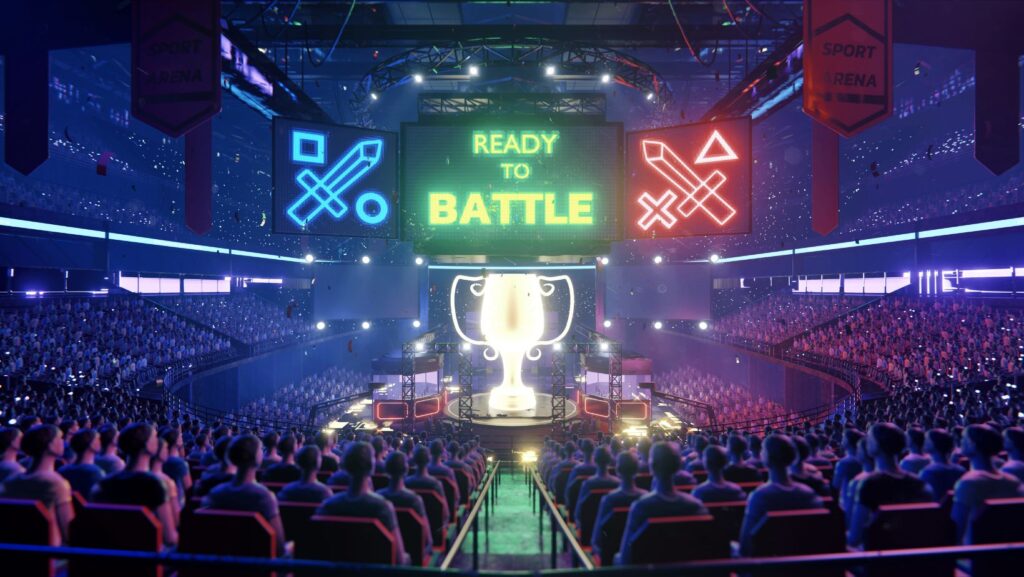Key Takeaways
- Growing Job Market: The esports industry is rapidly expanding, leading to increasing job opportunities in various roles within arenas, such as event coordinators, technical support staff, and marketing specialists.
- Diverse Skill Requirements: Successful candidates in esports arena jobs need a blend of communication, technical proficiency, organizational skills, and creativity to excel in their roles.
- Event Management Importance: Roles in event management are crucial for the smooth execution of esports events, requiring strong organizational abilities and effective teamwork.
- Technical Support Vitality: Technical support positions are essential for maintaining operational integrity during events, demanding expertise in IT and equipment management.
- Career Growth Potential: The growing esports sector offers numerous career advancement opportunities, allowing professionals to progress into management roles and specialize in various fields over time.
- Passion-Driven Work Environment: Working in an esports arena provides a unique blend of competitive gaming and entertainment, making it an exciting career choice for gaming enthusiasts.
As the esports industry continues to explode in popularity, so does the demand for skilled professionals to support its growth. Esports arenas are transforming into vibrant hubs of competition, entertainment, and community, creating a plethora of job opportunities. From event coordinators to technical support staff, these roles are crucial in delivering unforgettable experiences for fans and players alike.
With a unique blend of gaming culture and live events, working in an esports arena offers a thrilling career path for those passionate about gaming. The dynamic environment fosters creativity and collaboration, making it an exciting field for individuals looking to turn their love for esports into a rewarding profession. Understanding the various roles available can help aspiring professionals navigate this burgeoning industry and find their niche in the world of competitive gaming.
Esports Arena Jobs
Esports arena jobs encompass a range of roles within the competitive gaming sector. These positions contribute to the smooth operation and success of esports events and venues.
Common Job Roles
 Event Coordinators: They manage logistics, ensure timely execution of events, and coordinate with teams, vendors, and sponsors.
Event Coordinators: They manage logistics, ensure timely execution of events, and coordinate with teams, vendors, and sponsors.- Technical Support Staff: They provide IT assistance, maintain gaming equipment, and ensure network stability during competitions.
- Marketing Specialists: They develop promotional strategies, engage audiences through social media, and enhance brand visibility.
- Content Creators: They produce videos, graphics, and live streams, showcasing events and amplifying community engagement.
- Game Analysts: They analyze gameplay data, offer insights to teams, and enhance strategies for performance improvement.
Required Skills
- Communication Skills: Necessary for effective teamwork and audience interaction.
- Technical Proficiency: Understanding of gaming systems and streaming platforms.
- Organizational Skills: Essential for managing multiple tasks and event timelines.
- Creative Skills: Important for marketing and content creation roles.
Career Outlook
The esports industry shows consistent growth, with an increasing number of arenas emerging worldwide. This growth leads to an expansion of career opportunities in various fields. Organizations often seek passionate individuals who thrive in fast-paced environments and possess strong teamwork skills.
Types Of Esports Arena Jobs
Esports arenas offer diverse job opportunities that cater to various skills and interests. Below are the primary categories of roles available in this thriving sector.
Event Management Roles
Event management roles focus on planning, organizing, and executing esports events. Professionals in this category include event coordinators, who oversee logistics, scheduling, and venue arrangements. They ensure events run smoothly, addressing any challenges that arise. Additional roles in this category include:
- Tournament Organizers: They design tournament formats, handle registrations, and manage participant relations.
- Logistics Managers: They coordinate transportation, accommodation, and equipment needs for events.
Successful candidates in event management exhibit strong organizational skills, effective communication, and the ability to work under pressure.
Technical Support Positions
Technical support positions are crucial for maintaining the operational integrity of esports events. These roles require expertise in technology and equipment used in gaming setups. Key positions include:
- IT Technicians: They handle hardware and software issues, ensuring all systems function properly during events.
- Streaming Specialists: They manage live broadcasts, including camera setups and audio/visual quality control.
- Network Administrators: They oversee networks, ensuring stable internet connections for all participants.
Individuals in technical support roles need strong technical knowledge, problem-solving abilities, and the capacity to perform under tight deadlines.
Required Skills And Qualifications
 A variety of skills and qualifications are essential for success in esports arena jobs. Candidates should possess a mix of technical knowledge and interpersonal abilities to thrive in this competitive environment.
A variety of skills and qualifications are essential for success in esports arena jobs. Candidates should possess a mix of technical knowledge and interpersonal abilities to thrive in this competitive environment.
Effective communication stands as a cornerstone in esports arena roles. Professionals must relay critical information clearly and succinctly to team members, participants, and stakeholders. They need to engage with diverse audiences, including gamers, sponsors, and fans, ensuring discussions around logistics, event details, and technical support flow smoothly. Strong verbal and written communication skills facilitate teamwork and foster positive relationships within the fast-paced esports community.
Technical Expertise
Technical expertise plays a vital role in many esports arena jobs. Professionals require proficiency with various hardware and software tools, including gaming consoles, streaming platforms, and network management systems. IT technicians, for instance, must troubleshoot equipment and software issues quickly to maintain operational integrity. Streaming specialists should understand video production and broadcasting techniques to ensure high-quality event coverage. Those pursuing opportunities in technical support should also stay updated on emerging technologies and gaming trends to enhance event experiences and provide optimal solutions.
Career Opportunities And Growth
Career opportunities in the esports arena continue to expand as the industry evolves. Multiple roles within esports organizations cater to diverse interests and skill sets, creating a dynamic environment for job seekers.
Event Management Roles
Event management positions play a crucial role in the execution of tournaments and competitions. Job titles include:
- Tournament Coordinator: Manages event schedules and participant registrations.
- Logistics Manager: Oversees the operational aspects, such as venue setup and equipment rentals.
- Promotions Specialist: Drives awareness and excitement through marketing campaigns and partnerships.
These roles require strong organizational skills and the ability to work under pressure.
Technical Support Roles
Technical support roles ensure smooth operations during esports events. Common job titles are:
- IT Technician: Provides hardware and software support, addressing any issues that arise.
- Streaming Specialist: Manages live broadcasts, ensuring high-quality audio and video feed.
- Network Administrator: Maintains the network infrastructure, ensuring stable internet connectivity.
Candidates in these positions should possess technical proficiency alongside problem-solving capabilities.
Marketing and Content Creation
Marketing and content creation roles enhance the visibility of esports arenas. Key positions include:
- Marketing Specialist: Develops strategies to attract audiences and sponsors.
- Content Creator: Produces promotional materials, including videos and social media posts.
Creativity and communication skills are essential for success in these areas.
Game Analysts and Coaches
Game analysts and coaches contribute to team performance and strategy development. Roles include:
- Game Analyst: Analyzes gameplay data to identify strengths and weaknesses.
- Team Coach: Provides training and strategy advice to players.
Analytical skills and a deep understanding of games are vital for these positions.
Growth Prospects
As the esports industry matures, career growth opportunities emerge. Professionals can advance into management positions, overseeing large teams and multiple events. Networking within the esports community further aids career development.
The continuous advancements in technology and increased investment in esports arenas add to the industry’s appeal. Expanding job markets offer pathways for individuals passionate about competitive gaming, making esports arena jobs an attractive career choice.

